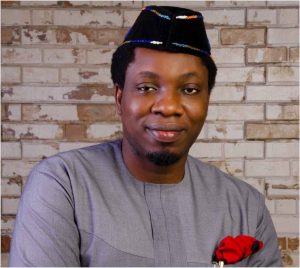
The perspective of men and women who promote their nation…
Driven by the need to aggregate the story of the Ibom people into accessible, portable, trustworthy information, we have come together to form Ibom Heritage. An initiative of Oto-Obong Uwah, author of Ibibio Nation: History and Culture, Ibom Heritage was created to ensure that our culture and all its offerings are preserved from generation to generation.

Author, Ibibio Nation: History & Culture
If you are an Ibibio person who has read earlier historical, anthropological, and sociological accounts of your Ibibio nation, this book dwarfs them all.
Prof. Ekong E. Ekong (OFR)
…the war was fought by women of the former Calabar Province in places such as Abak, Opobo (Ikot Abasi) and Utu Etim Ekpo.
Oto-Obong Uwah
Ibibio Nation: History & Culture
Hover over images to view topics

Oto-Obong Aniefiok Uwah is the author of Ibibio Nation: History and Culture. He represents the new generation of Philosopher-Kings who believe in the unfailing strength of the human capacity to change every contrary situation. A highly motivated individual, he also plies his social trade in public speaking, coaching and mentoring.
He holds a BSC in Accounting from the University of Uyo and an MSC in International Accounting & Finance from the University of Liverpool. In his career, spanning over 19 years as an accountant and budget/cost analyst in the public and private sectors, he has developed a robust aptitude for analytical reviews and cost management towards efficient project delivery; having practiced as a Trainee Accountant with the Federal Civil Service and Cost Controller in the Oil & Gas Sector.
In actualizing various roles within this professional context, he built capacity and mentored other professionals in those roles. Currently an HR Compensation and Benefits professional, Oto-Obong has used his experience as an active labour unionist to push reforms that have led to a fairer welfare and compensation structure within the workplace.
Currently an HR Compensation and Benefits professional, Oto-Obong has used his experience as an active labour unionist to push reforms that have led to a fairer welfare and compensation structure within the workplace.
Oto-Obong Uwah is a Fellow of the Institute of Chartered Accountants of Nigeria (ICAN). He is widely trained on both local and international platforms, enhancing his professional capacity towards improved service delivery.
He is a poet, writer, political scientist, public commentator, sports enthusiast, and an accomplished humanist. His latest foray as a humanist is in the field of anthropology and heritage studies, committed to the propagation of the Nigerian cultural heritage.
Oto-Obong Uwah is of the Pentecostal section of the Christian community, happily married and blessed with three beautiful daughters. As a philanthropist, he has teamed up with his beloved wife to sponsor scores of indigent Nigerians through various levels of education. He is a very sociable person and an astute networker, easily found in the company of smart and intelligent people.
His life’s dream is the consistent improvement of humanity and the continued development of the social eco-system to make for a more fulfilling life for all. Driven by this mantra, he set out in 2015, to document the history of his Atan Offot Community in Uyo Local Government Area of Akwa Ibom State. What started as a clan-centered ambition to document the history of a small community created the pathway to a more expansive research that evolved to produce the book shared with the public today. Thus, Ibibio Nation: History and Culture is one of his modest contributions to the current global interest in the history and sociology of ethnic minorities.